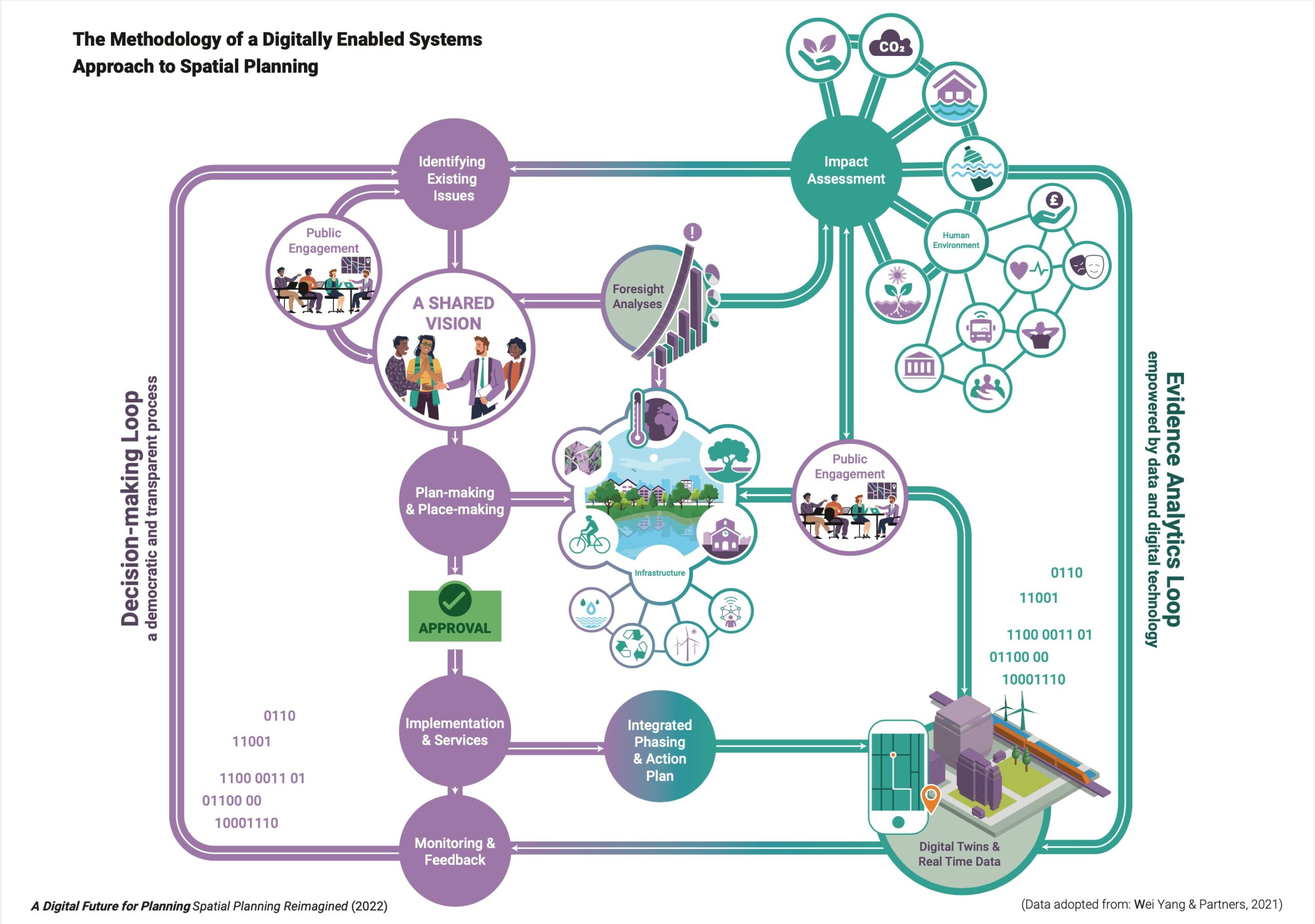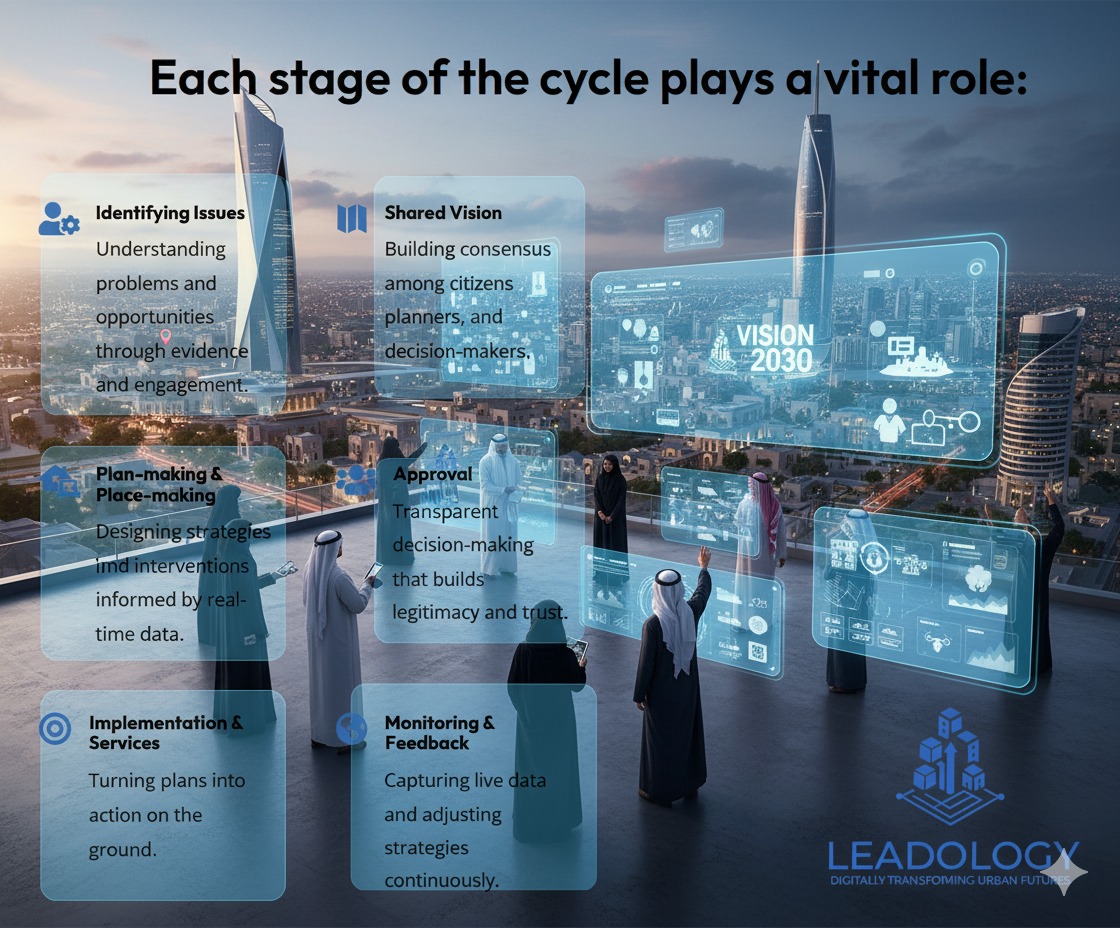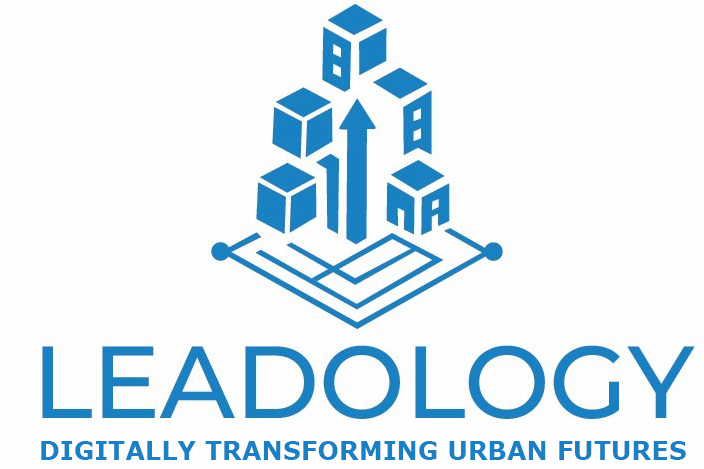Our Methodology
A Digitally Enabled Systems Approach for Urban Planning

Why a New Methodology is Needed
For most of the last century, planning has been treated as a static exercise: a plan is written, approved, and only lightly updated over time. But the world we live in today is far more complex and fast-moving.
Cities and regions now face interconnected challenges:
- The climate emergency and the race to net zero
- Biodiversity decline and environmental degradation
- Public health crises and social inequalities
- Rapid urbanization and housing pressures
- Infrastructure demands for energy, transport, and water
- Technological disruption reshaping how we live and work
Traditional planning cannot keep pace. What’s needed is a continuous, digitally enabled system — one that adapts in real time, learns from evidence, and engages people transparently.


A Digitally Enabled Systems Approach
This new methodology was defined by the Digital Task Force for Planning (Batty & Yang, 2022) and is recognised internationally as the way forward.
At its core are two interlinked loops:
- The Evidence Analytics Loop — powered by data, digital twins, AI, and real-time insights.
- The Decision-Making Loop — a transparent, democratic process involving people, governance, and collaboration.
Together, they form a cyclic system that transforms planning from a one-off act into a living, adaptive process.

Each stage of the cycle plays a vital role:
Identifying Issues
Understanding problems and opportunities through evidence and engagement.
Shared Vision
Building consensus among citizens, planners, and decision-makers.
Plan-making & Place-making
Designing strategies and interventions informed by real-time data.
Approval
Transparent decision-making that builds legitimacy and trust.
Implementation & Services
Turning plans into action on the ground.
Monitoring & Feedback
Capturing live data and adjusting strategies continuously.

Leadology’s Role
At Leadology, our mission is to turn this methodology into practice. We help cities, regions, and agencies embrace digital transformation and move from vision to impact.
Advising governments and agencies on governance
transferring strategies into practice through proven digital transformation methodologies.
Building innovation practices
to translate strategies into tangible, scalable solutions.
Capacity building
upskilling institutions, planners, and decision-makers with digital knowledge and tools.
Connecting research with practice
to ensure innovation is grounded in real-world needs and challenges.
Bridging the gap between global innovation and local implementation
adapting world-class frameworks to regional contexts.
Integrating real-time data and digital twins
into planning and decision-making processes.
Developing advanced geospatial applications, models, and analytics
to power evidence-based strategies.
Applying AI, modelling, and simulation tools
for foresight, scenario testing, and predictive insights.
Building digital platforms
that enable transparent, inclusive, and meaningful citizen participation.
Why It Matters

This methodology enables planning to be:
- Faster and more responsive — driven by live evidence.
- Transparent and democratic — with citizens actively engaged.
- Sustainable and resilient — aligned with net-zero and SDGs.
- Continuous and adaptive — never out of date, always learning.
Closing Statement
“This is not theory — it is a proven, research-backed framework for planning in the digital age. Leadology’s role is to implement it in practice, enabling cities and regions to plan smarter, adapt faster, and build more resilient, inclusive, and sustainable futures.”
